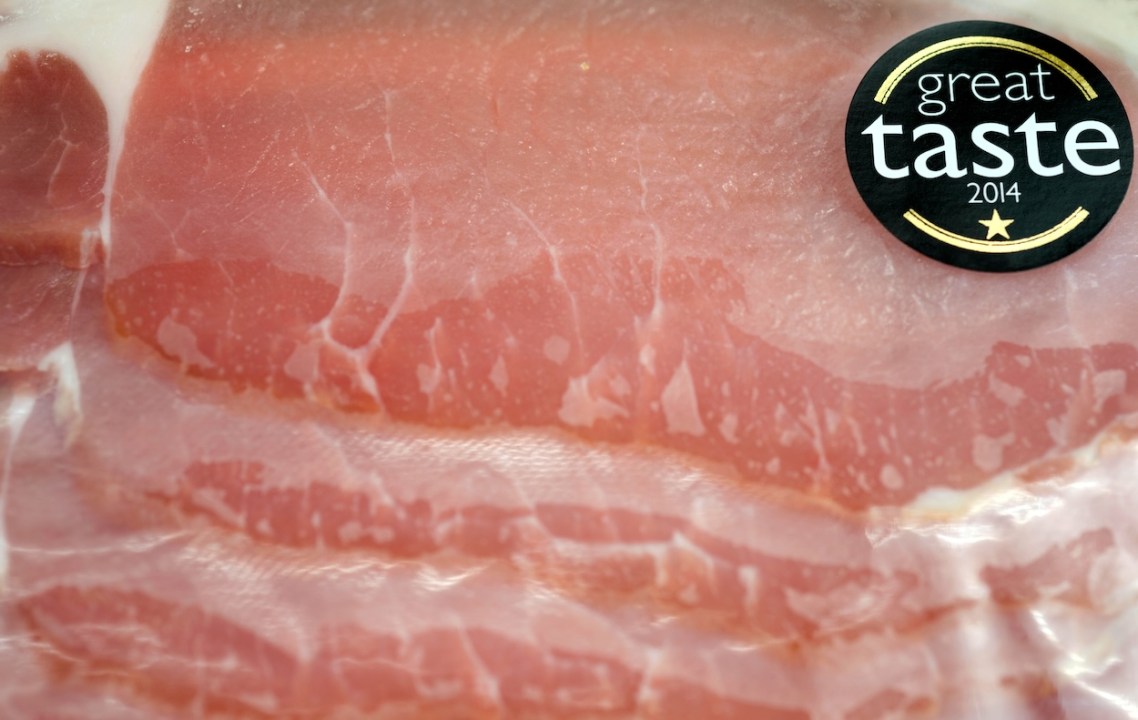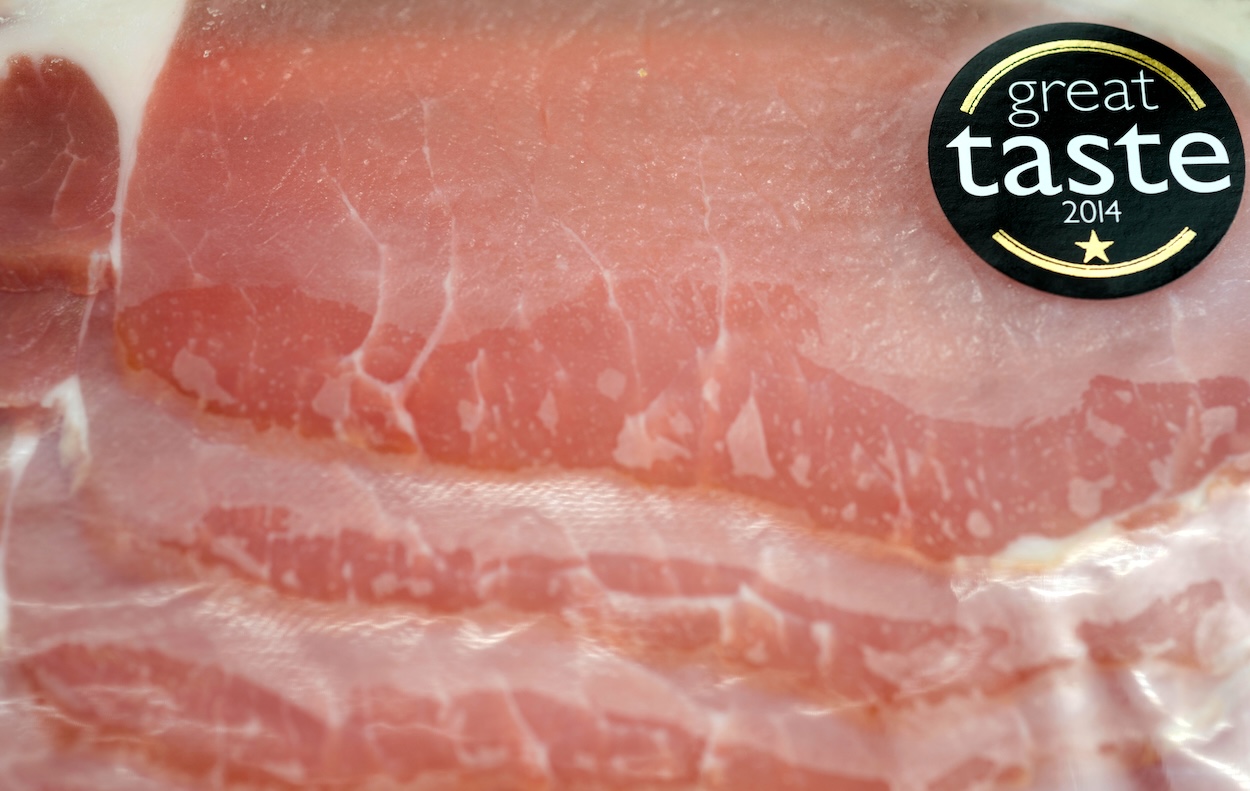Rummage through any middle-class pantry or browse the shelves of an artisanal deli and you’ll spot a constellation of stars. One star denotes ‘simply delicious’. Two suggests ‘outstanding’. Three? ‘Exquisite.’ The stars are handed out by the Great Taste Awards, run by the Guild of Fine Food, which was founded by Bob Farrand in 1992. This year’s 14,340 hopefuls will hear how they fared today, with judging having closed earlier this month after 110 days of tasting across seven locations.
Only 787 products currently hold the top rating. Belazu’s rose harissa paste, at about £5 a jar, is available from any good supermarket, and was awarded three stars in 2019 (although the Great Taste Awards are at pains to make clear these stars expire after three years, many brands, including Belazu, continue to use the awards on their labelling). Last year, a back bacon joint glazed in acacia honey from Lidl was also given the ‘exquisite’ rating. While the star-studded badge is recognisable, the award process itself remains surprisingly obscure. From my informal survey – friends and relatives – few knew about the Guild, its judges, or how the stars are handed out.
Neither did I, until I walked into the Guild’s headquarters – a chocolate-covered strawberry’s throw from Borough Market in London. Judges are expected to have expertise and experience in the food industry. Inside, the atmosphere was part office, part test kitchen, part dining room. The judges are not interested in viral food fads. One veteran dismissed buzzwords such as ‘protein-packed’, ‘CBD-infused’ and ‘gut-friendly’ as marketing fluff. She said I was lucky to have joined this tasting session because it was a strong batch. ‘Usually,’ she said, ‘there’s so much crap.’
Each table had at least three judges. Ours included the no-nonsense veteran and a chef, who was also a fermentation expert. A lead judge typed up our notes and star ratings on a laptop – feedback that would later be sent to producers. Stars are then awarded based on a consensus of the groups. We did not know this score on the day of judging, with products undergoing multiple tests.
Before us lay a sterile spread of anonymised items – jars, tubs and boards – each accompanied only with a brief description from the maker. If something puzzled us, the lead judge could consult the ingredients list. Waiters milled about, offering judges tea and coffee, or the connoisseur’s choice – hot water. Plain water biscuits were also provided, to help cleanse the palate between tastings.
A short welcome speech kicked things off. This was the 32nd Great Taste Awards. ‘We’re here to support small producers,’ a rep explained. Of the 14,000 or so entries, more than 60 per cent don’t earn a star – but all receive feedback. We were told to be objective and avoid bias.
Then we began. The atmosphere was relaxed, but serious: fairness was the goal. First up: a vegan bagel topped with nigella seeds. ‘They shoot themselves in the foot with these descriptions,’ said the veteran. Describing the thing as a bagel sets one up for immediate disappointment. Because, really, it was more cakey than anything – entirely devoid of the usual chew. The cake-bagel was flimsy and light, and far too sweet. Our private critique was brutal, but the notes we submitted were constructive.
Eventually, I found my footing. When handed a vegan mayonnaise, I said it outright: it was diabolical
‘The problem,’ said the veteran dryly, ‘is the copywriters – especially the ladies – who go on and on.’ She was impressed, though, by the man in charge of our table’s laptop, who was dispensing feedback with speed and alacrity. We pressed on, with a strange leek, potato and apple soup. It would have been suitable only for small, unloved children. Then, a few tastings later, tumblers of beef dripping appeared. My fellow judges were concerned that the tallow was uninspiring: where were the grass notes, the bouquet of the field? I was more bemused by the process – baffled how one could appraise such an ingredient.
Eventually, I found my footing. When handed a vegan mayonnaise, I said it outright: it was diabolical – like gone-off lemon curd, with the curiously gummy texture of sour toothpaste. We treated ourselves to dandelion chocolates – lacquered domes filled with a bitter ganache that looked like a spider had danced across them in ink. We sipped chai vanilla kefir. The fermentation expert said it lacked the lactic tang he expected. ‘Another day fermenting might’ve rounded it out.’
Disaster struck: a chutney. Raisins, unlisted in the ingredients, ambushed us. ‘Like a jar left in granny’s cupboard,’ was how the no-nonsense veteran described it. It was ‘filth’, she added. But spirits rose again with olive oil. My fellow judges took this seriously. I was taught how to warm the glass, to let the aroma unfurl, then sip – breathing through the sides of one’s mouth to fully taste the oil. It had the sharp, green scent of tomato vines, reminding me of our old greenhouse when I was a child. The fermentation expert said he had a vial of olive oil from Nazareth, which he would only open when ‘Palestine is free’. The other judge said it was a quirk of Brexit that Britain could now enjoy the world’s best olives. We import them from North Africa and the Middle East.
I returned after lunch, newly radicalised. For the afternoon session, I joined two honey experts – one Greek, one from Essex. The latter, a dead ringer for Angela Rippon, was our lead. ‘There would be no pity points,’ she said. ‘I’m a hard-hearted bitch.’ One honey earned her scorn: ‘Pedestrian,’ she declared, certain the bees hadn’t grazed solely on heather. I listened as the two dissected the jar in waspish fashion. By the time I left the Guild’s headquarters, I had a new reverence for the act of tasting. My stomach, though, was thoroughly confused. I had eaten 53 different foods.







Comments